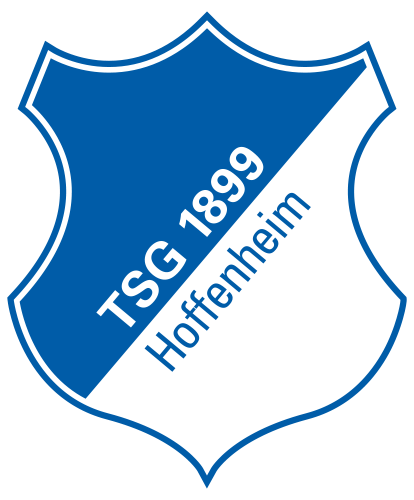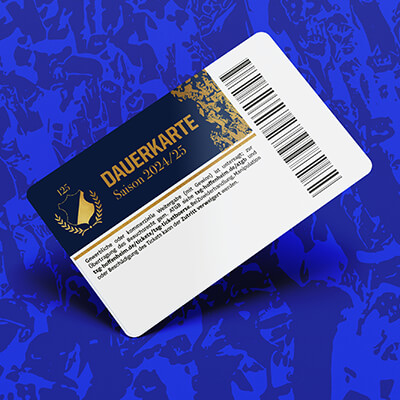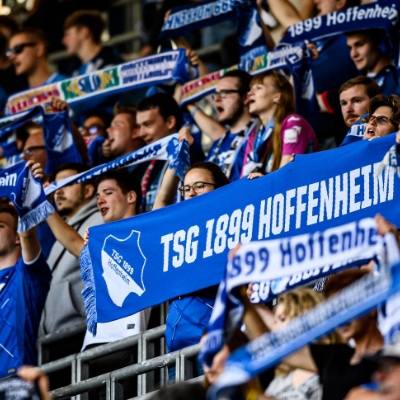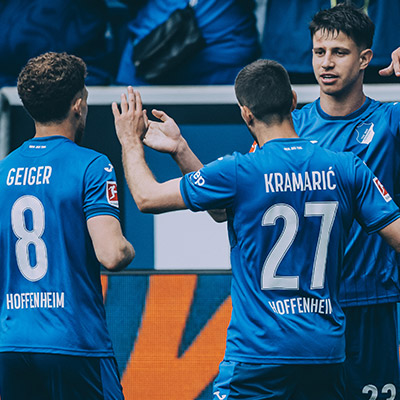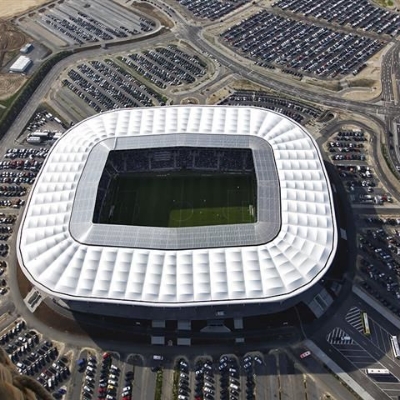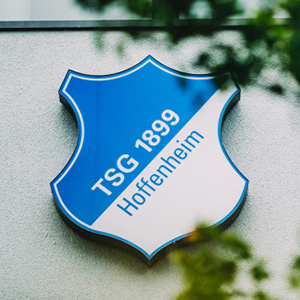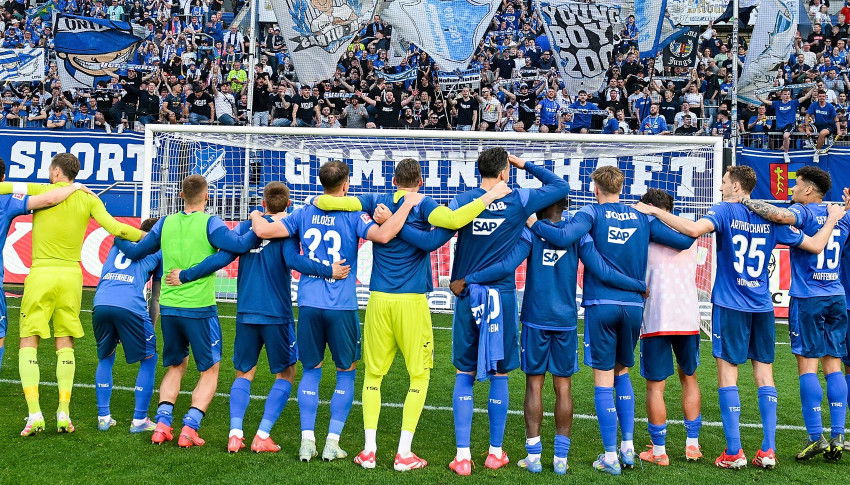Remembrance tour: deeply touched
The group of the 19 participants and seven team leaders were captivated by the screen showing Menachem Mayer. The 92-year-old is sitting at home in Israel and speaks in a video call about his difficult childhood – about a time when he was still called Heinz. "The images that are still in my head today of the camp in Gurs are mud and dirt. Knee-deep mud everywhere and the most horrendous conditions in terms of hygiene," says the sprightly old man. A total of 60,509 prisoners, including 6,504 Jews from Baden, were held for six years on a site that is now home to a memorial. Menachem is asked by a TSG fan which experience he still thinks about the most today. "I can still see my father's deeply sad eyes as he said goodbye to me. My mother was not allowed to come up to us – she could only wave. We didn't know it then, but we would never see our parents again," said the former Hoffe boy, whose mother and father were brought to a concentration camp that day, where they were ultimately murdered. The TSG fans and Sinsheim schoolchildren, as well as their guardians, are deeply touched by the accounts.
"The conversations with Menachem in particular were very moving"
"The conversations with Menachem in particular were very moving, because he said things that were unimaginable to us all," said Lukas Zülch, who helped organise the "Remembrance tour – lest we forget" as a fan representative of TSG Hoffenheim. There were two Zoom calls with Menachem, who still speaks German well, some 82 years after being expelled from his home country. "We spoke once a day before our visit to the camp where he and his brother Fred were interned and once on the day after," said Zülch: "Our group was very impressed with how confident and self-assured Menachem is today in dealing with his past and that he has remained such a positive person despite everything. He called on us and the young people of Germany to do something to make sure that nothing like this ever happens again." The active involvement of Dr. Menachem Mayer, an educational scientist, made the visit to the place where he and his now deceased brother Fred Raymes (formerly Manfred Mayer) experienced so much suffering all the more impressive. His account made the horror they experienced tangible, while the visit to the place where it happened made it all the more vivid.
It was not the first time that TSG Hoffenheim have looked into the terrible fate of Jewish people from North Baden – and especially those from the Kraichgau – before, during and after the period of National Socialism. Among other things, Dietmar Hopp was involved in the creation of the 2007 film "Menachem & Fred". TSG Hoffenheim's Israel international Ilay Elmkies was involved in the film "Zahor" in 2018, which dealt with the life of Menachem and Fred and their parents, who were murdered in Auschwitz. And the TSG fans' remembrance trip to Gurs was intensively prepared in the run-up to the international match between Germany and Israel in Sinsheim. A workshop was held on 25 and 26 March in Neckarzimmern to prepare for the trip,
in which the group learned about the horrors the Mayer family had to experience during the November pogroms in 1938 ("Kristallnacht") in Hoffenheim, when the furniture from their apartment was burned in public. Heinz and Manfred had already been forced to leave school in Hoffenheim in 1937, their father lost his job, and the harassment became more and more terrible. "I was constantly bullied and beaten. I learned to walk away, hide and dodge the stones that were thrown at me," Menachem said in the 2007 film. An adult had never stepped in, despite the fact that many had seen it.
Many TSG fans have been deeply touched by the discussion of Jewish history in the Kraichgau in connection with the remembrance tour. The tour group created a close bond over the 1,300 km journey from Sinsheim – a good example of how a connection with TSG can mean more than just going to the PreZero Arena. "TSG's fan work goes far beyond the stadium. With this trip to Gurs as the flagship project, we have managed to integrate educational policy work into fan relations," said Carsten Lindwurm, who was the TSG fan representative in charge of the project at the time. "There was great interest in our tour and the extensive preparations at the club. We got a lot of support with the organisation," said Lindwurm, who left his role at TSG on 30 June. The trip was partly funded by the German Football League.
In addition to the talks with Menachem, the visit of the memorial at the former internment camp, which opened in 1994, and the camp cemetery with more than 1,000 graves were the highlights of the tour – despite the fact that a memorial can never fully reflect the brutal events that took place there between 1940 and 1945. Directly after World War II, a forest was planted at the very location where the people interned were then locked up behind barbed wire fences and forced to live under devastating conditions. The Gurs camp, however, was not comparable to extermination camps like Auschwitz or Treblinka. One particular historical aspect, however, is that the Jewish people in Baden were deported as early as in the autumn of 1940 – that is, before the Wannsee Conference in 1942, at which the Nazi leadership organised the Holocaust in detail.
Manfred and Heinz left the Gurs camp in the spring of 1941 thanks to the help of an underground aid organisation and made it to an orphanage. Until 1942, they received mail from their parents, and it was only after the war that they learned of their murder in Auschwitz. After the Wehrmacht had occupied southern France in 1942, the brothers had to go into hiding, and in May 1944, the 12-year-old Menachem was smuggled into Switzerland by the aid organisation. He remained there until 1948 – in nine different institutions. Manfred continued to live in hiding in France until he emigrated to the USA in 1946, adopted the name Fred Raymes and became a successful aerospace engineer. Heinz emigrated to the newly founded state of Israel in 1948. He changed his name to Menachem Mayer and later became director of the Israeli Ministry of Culture.
For 26 years, the brothers did not see each other again until they finally met up in Israel. Menachem returned to Hoffenheim for the first time in 1974, "because I was connected with Germany by some kind of magic", but was disappointed by the lack of interest in his story at the time. The brothers began to write down what happened to them, and in 2005 they spent a few days in Hoffenheim with other family members at the invitation of the Hopp family. Their book was turned into the film "A reunion in Hoffenheim – Menachem & Fred". It won awards, particularly in Israel, and even at the Berlinale awards.
The cautionary tale in memory of the Mayer family in Hoffenheim and many of their fellow citizens who were abducted is now firmly established, also at TSG Hoffenheim. A film about the trip to Gurs will be made following the trip, and it will be available to view on all of TSG's platforms. In addition, a meeting of the participants and team members will be held around 22 October, the anniversary of the Mayers' deportation, at which further projects will be fleshed out and planned.



